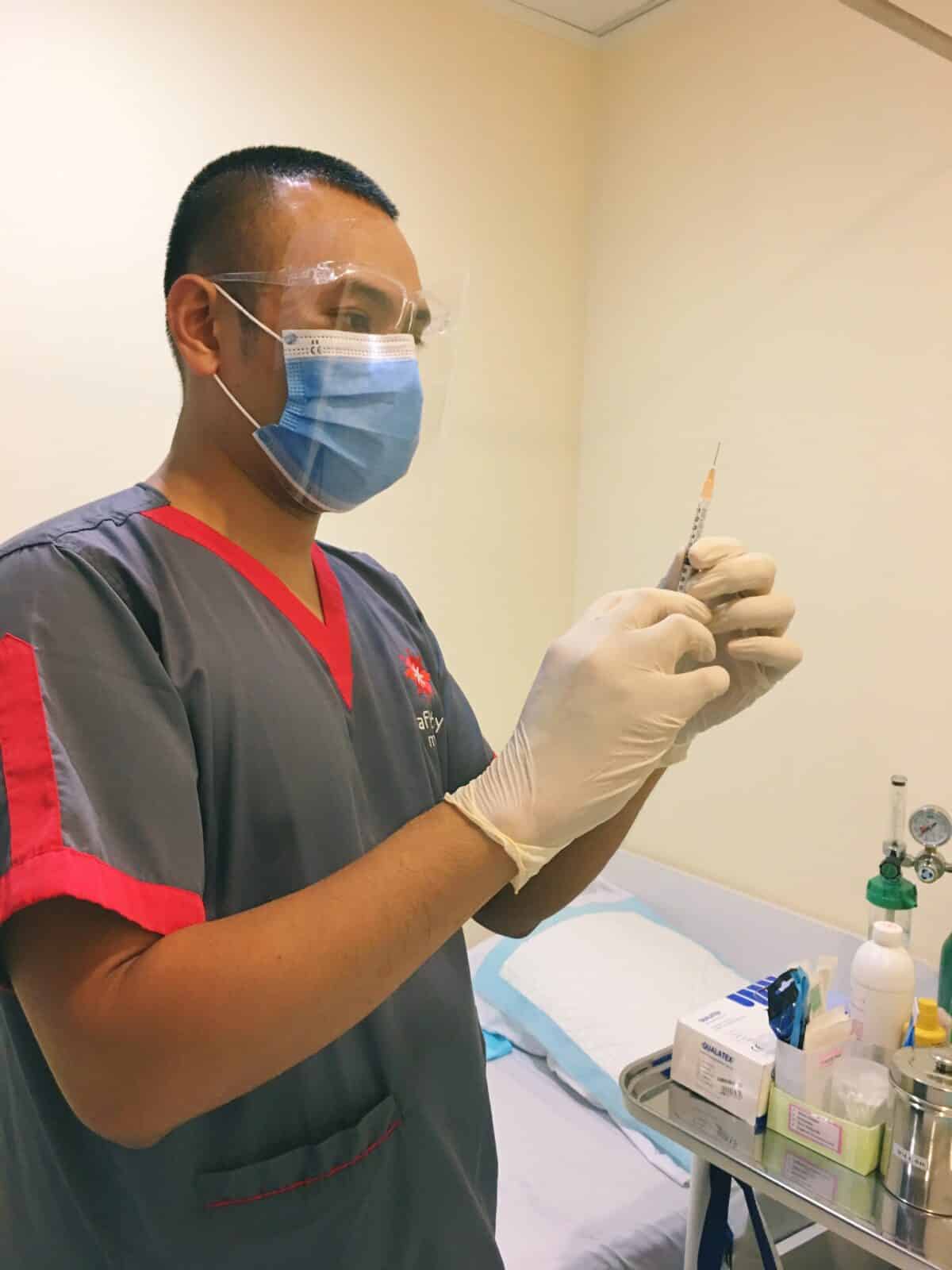Nurse Practitioner (NP) vs Physician Assistant (PA): Which Role is Right for You?
Nurse Practitioner (NP) vs Physician Assistant (PA): Which Role is Right for You?
Are you looking to pursue a healthcare career, but aren’t sure which role is right for you? If so, you’re likely considering becoming either a family nurse practitioner (NP) or a physician assistant (PA). While both occupations provide valuable services to patients, they involve different levels of education, clinical responsibilities, and job outlooks. In this article, we’ll explore the differences between NPs and PAs so that you can make an informed decision about the correct medical model.
Introduction
Welcome! If you’re considering a healthcare career, it’s important to understand the difference between a nurse practitioner (NP) and a physician assistant (PA). Both are rewarding and essential roles in the medical field, but they have different education requirements, clinical responsibilities, and job outlooks. In this article, we’ll discuss these distinctions so that you can make an informed decision about which role is right for you.
NPs and PAs both provide vital services to patients, but let’s discuss how different their roles are.
What Does a Nurse Practitioner Do?
Nurse practitioners (NPs) are advanced practice registered nurses who specialize in providing primary care and certain medical services. NPs have completed a master’s degree program and are certified in their field of expertise.
They diagnose and treat illnesses, order tests, and diagnostic procedures, provide patient education, manage acute and chronic conditions together, and prescribe medications.

NPs typically work in primary care settings such as family practices, internal medicine offices, pediatric clinics, or urgent care centers. They also work in specialty areas such as women ‘s health, mental health, emergency medicine, and gerontology. NPs will typically be the main point of contact for patients, managing their care from start to finish.
What Does a Physician Assistant Do?
Physician assistants (PAs) are medical professionals who work alongside doctors to provide patient care. They have completed an undergraduate program and successfully passed a national certification exam. PAs diagnose and treat illnesses, order tests, provide patient education, and prescribe medications.
PAs typically work in a variety of healthcare settings such as hospitals, private practices, urgent care centers, and specialty clinics. They may also work in research or teaching environments. While PAs are supervised by doctors or surgeons, they often take on many of the same responsibilities as a physician.
Nurse Practitioners vs Physician Assistants Differences and Similarities Compared In Detail
So, what are the key differences between family nurse practitioners (NPs) and physician assistants (PAs)? Let’s take a closer look.
It’s important to understand the similarities and differences between these two healthcare roles, so let’s break it down. Both NPs and PAs enjoy rewarding careers that involve diagnosing illnesses and providing patient education.
Education and Training
NPs and PAs have very different educational requirements. NPs must complete a master’s degree program in nursing, while PAs must complete an undergraduate program in medical science. Additionally, NPs are required to obtain board certification in their specialty area, while PAs must pass the National Commission on Certification of Physician Assistants (NCCPA) exam.
Clinical Responsibilities
Both NPs and PAs provide similar clinical services such as diagnosing and treating illnesses, ordering lab tests, providing patient education, and prescribing medications. However, NPs are often the main point of contact for patients while PAs typically work alongside physicians or surgeons in a team-based approach to care.
Job Outlook
The job outlook for both NPs and PAs is positive, with both professions expected to experience significant growth in the coming years. According to the Bureau of Labor Statistics (BLS), employment for NPs is projected to grow by 45% from 2019 to 2029, while employment for PAs is projected to grow by 30% over the same period.
Nurse practitioners and physician assistants are essential roles in the medical field. Both provide vital services and have positive job outlooks. However, it’s important to understand the differences between these two professions before making a decision about which role is right for you. NPs must complete a master’s degree program, while PAs must complete an undergraduate program and pass the NCCPA exam.

Additionally, NPs tend to focus more on primary care services while PAs may work in a variety of healthcare settings. No matter which role you choose, you’ll be able to enjoy a rewarding career and make a difference in the lives of patients.
However, NPs tend to focus more on primary care settings while PAs may work in a variety of healthcare settings. In terms of education, NPs must complete a master’s degree program and receive certification in their specialty area, while PAs must complete an undergraduate program and pass a national certification exam. Finally, NPs typically have a higher job growth outlook than PAs.
No matter which role you choose, you’ll be able to enjoy a fulfilling career while helping patients get the care they need.
Schooling and Education Requirements For A Nurse Practitioner vs. Physician Assistant
If you’re considering a career as a Nurse Practitioner or Physician Assistant, there are some important differences to consider when it comes to schooling and education requirements.
Nurse Practitioners typically require a master’s degree in nursing. This program consists of both classroom instruction and clinical experiences. Additionally, NPs must obtain board certification in their specialty area.
Physician Assistants, on the other hand, require an undergraduate degree in medical science. After completing their undergraduate program in medical school, PAs must pass the National Commission on Certification of Physician Assistants (NCCPA) exam.
Both professions have a variety of specializations, from pediatrics to geriatrics, and many more. It’s important to consider which specialization you’d like when selecting your field of study.
In conclusion, Nurse Practitioners and Physician Assistants both require different educational backgrounds to progress in their respective fields. NPs must obtain a master’s degree and certification, while PAs must complete an undergraduate program and pass the NCCPA exam. It’s important to understand the differences between these two professions before making a decision about which role is right for you.
Education Requirements for NPs and PAs
Deciding whether you want to pursue a career as a Nurse Practitioner or Physician Assistant can be tricky. Both require different educational backgrounds and come with their own sets of challenges. So, what do you need to know about the educational requirements for each profession?
For Nurse Practitioners, you’ll need to obtain a master’s degree in nursing. This program typically includes both classroom instruction and clinical experiences. Once you’ve obtained your graduate degree, you’ll also need to obtain board certification in your specialty area.
For Physician Assistants, you’ll need to complete an undergraduate program in medical science and pass the National Commission on Certification of Physician Assistants (NCCPA) or the physician assistant education association exam, and become a part of the American nurses credentialing center.
No matter which role you choose, it’s important to understand the differences between NPs and PAs before making a decision about which field is right for you. With the right education and training, especially for physician assistant studies, you’ll be well-equipped to make a difference in the lives of patients.
Clinical Responsibilities of NPs and PAs
NPs and PAs both have crucial roles in the healthcare landscape, and their clinical responsibilities vary depending on their specialization.

Registered Nurse- Practitioners, provide primary care services including diagnosing and treating common illnesses, ordering tests, and providing preventative care. They provide direct patient care and may also prescribe medications to treat certain conditions. Additionally, NPs focus more on holistic care, offering counseling and lifestyle advice to help specific patient populations live healthier lives.
Physician Assistants work closely with doctors to provide patient care, such as diagnosing and treating injuries and illnesses. They may also perform minor surgical procedures, order tests, write prescriptions, and counsel patients. PAs typically work in a variety of medical settings, including hospitals, clinics, and private practices.
No matter which role you choose, it’s important to understand the differences between NPs and PAs to determine which field is right for you. With the right education and training, you’ll be well-equipped to make a difference in the lives of patients.
Differences In Clinical Responsibilities
When it comes to the clinical responsibilities of Nurse Practitioners and Physician Assistants, there are some key differences.
NPs provide primary care services such as diagnosing and treating common illnesses, ordering tests, and providing preventative care. They may also prescribe medications and offer counseling and lifestyle advice to help patients live healthier lives. PAs focus more on working closely with doctors to provide patient care, such as diagnosing and treating injuries and illnesses. PAs may also perform minor surgical procedures diagnostic and lab tests, order tests, and write prescriptions.
NPs may specialize in a certain field of medicine such as women’s health or pediatrics, while PAs may work in multiple settings such as hospitals, clinics, and private practices.
No matter which role you choose, it’s important to understand the differences between these two professions before deciding on which is right for you. With the right education and training, you’ll be well-equipped to make a difference in the lives of patients.
Job Outlooks for NPs and PAs
Job outlooks for Nurse Practitioners and Physician Assistants are looking very positive. According to the Bureau of Labor Statistics, employment of NPs is expected to grow by 45% between 2018 and 2028 – much faster than the average for all occupations. There are numerous job opportunities available in a variety of healthcare settings.
For Physician Assistants, the job outlook is also strong. Employment of PAs is projected to grow by 28%, which is much faster than average. There are numerous job opportunities available in a variety of medical settings.
Future Job Outlooks for NPs and PAs
Nurse Practitioners and Physician Assistants have promising job outlooks for the future. With an aging population and increasing demand for healthcare professionals, both NPs and PAs will be in high demand in the coming years.
The need for NPs is expected to increase as more patients seek out primary care services. As the baby boomer population begins to age, more people will be needing preventative care, chronic, disease prevention and management, and health promotion services – all of which can be provided by a family Nurse Practitioner. PAs are also expected to be in high demand as preventive healthcare facilities look for more cost-effective ways to deliver quality patient care.
Furthermore, both NPs and PAs are increasingly being utilized in advanced medical care and in rural areas where access to healthcare is often limited. This trend is anticipated to continue in the future as more healthcare organizations look for ways to improve access to primary care providers and for underserved communities.
Overall, the job outlooks for Nurse Practitioners and Physician Assistants are very promising. With the right education and experience, you’ll be well-equipped to provide quality patient care for years to come.
Work Environment Differences
The work environment of Nurse Practitioners and Physician Assistants can vary significantly. While both roles provide important healthcare services, NPs are typically able to work more independently than PAs. As they are often the primary care provider in a setting, NPs have more autonomy in diagnosing and treating patients.
Nurse Practitioners are also often responsible for managing care plans counseling patients, ordering diagnostic tests, and providing education to patients on healthy lifestyle choices. This means that they may work in a variety of settings, such as hospitals, clinics, and private practices.
Physician Assistants typically work in a team environment and collaborate closely with physicians to provide patient care. They are often responsible for examining patients, ordering tests, and prescribing medications. PAs may also be involved in minor surgical procedures or assist with larger surgeries under the direction of a physician. These healthcare professionals typically work in hospitals, clinics, or private practices.
Nurse Practitioners and Physician Assistants are two important healthcare roles that can make a real difference in the lives of patients. Both of these professions have extremely positive job outlooks, and with the right education and experience, you’ll be well-equipped to provide quality patient care for years to come.
It is important to understand the differences between NPs and PAs before deciding which is right for you. Take some time to research both roles thoroughly so that you can make an informed decision about your future career path.
Job Duties
Nurse Practitioners (NPs) and Physician Assistants (PAs) both provide important healthcare services in a variety of various medical offices and settings. While both roles require specialized knowledge and training, there are some distinct differences in their job duties and responsibilities.
Nurse Practitioners typically have more autonomy than PAs when it comes to diagnosing and treating patients. NPs can often serve as the primary care provider in a setting, meaning they are responsible for managing patient care plans, ordering tests, and providing education to patients on healthy lifestyle choices. They may also have full practice authority to prescribe certain medications depending on their licensing.
Physician Assistants typically work in a team environment and collaborate closely with physicians to provide patient care. They are often responsible for examining patients, ordering tests, and prescribing medications. PAs may also be involved in minor surgical procedures or assist with larger surgeries under the direction of a physician. In addition to patient care duties, PAs may also be responsible for physician’s supervision for administrative tasks such as managing patient records or scheduling appointments.
Overall, both Nurse Practitioners and Physician Assistants are essential healthcare professionals who provide high-quality care to patients. While the job duties of each role may differ, they both have a vital role in community centers providing quality patient care.
FAQs
Is A PA Higher Up Than A Nurse Practitioner?
No, PAs and NPs are both healthcare professionals with distinct roles and responsibilities. While they often work together to provide patient care, there is no hierarchy between the two roles. Both NPs and PAs have different levels of clinical training and experience, which can affect their job duties. Ultimately, both professions play an important role in providing quality healthcare services to patients.
What Are the Benefits of Becoming a Nurse Practitioner or Physician Assistant?
Becoming a Nurse Practitioner or Physician Assistant can provide you with a rewarding and satisfying career in healthcare. Both roles require specialized training and expertise, and both offer competitive salaries as well as job stability. Additionally, NPs and PAs often enjoy more flexible working hours than physicians, which can be beneficial for those looking to balance their personal and professional lives.
Nurse Practitioner (NP) vs Physician Assistant (PA): Which Role is Right for You?
When deciding between a Nurse Practitioner and a Physician Assistant, it’s important to consider your skills, interests, and career goals. Both roles offer rewarding opportunities and can provide you with the satisfaction of helping patients receive quality care.
However, each role requires different levels of training and responsibility, so it’s important to research both thoroughly before making your decision. Consider your strengths and weaknesses, as well as the job outlook for each role, before making your final decision.
Is It Better To Be A PA Or NP?
Is it better to be a PA or NP? That depends on your own personal interests and career goals. Both professions offer rewarding opportunities and competitive salaries, along with job stability and flexible working hours.
NPs are typically more autonomous when it comes to direct patient care, while PAs often work in teams and collaborate closely with physicians. If you’re looking for more independence while still having access to physician resources, then being an NP may be the right choice for you.
When deciding between becoming a Nurse Practitioner or Physician Assistant, it’s important to consider your skills, interests, and career goals. Both roles can provide you with a rewarding and satisfying career in healthcare that pays competitive salaries.
NPs are typically more autonomous when it comes to diagnosing and treating patients, while PAs often work closely with physicians in a team environment. If you’re looking for more independence while still having access to physician resources, then being an NP may be the right choice for you. Ultimately, the decision between becoming a Nurse Practitioner or Physician Assistant is a personal one that should be based on your unique skills and goals.
No matter which route you choose, becoming an NP or PA is a rewarding and satisfying career in healthcare. Both roles offer competitive salaries as well as job stability and flexible working hours. Furthermore, both professions are critical to providing quality patient care.

When deciding between a Nurse Practitioner and Physician Assistant, it’s important to assess your skills, interests, and goals. While NPs have more autonomy when it comes to patient care, PAs work together with physicians in a team environment. Ultimately, the decision should be based on your individual needs and preferences.
Is A PA More Qualified Than A Nurse?
When it comes to deciding between becoming a Physician Assistant or Nurse Practitioner, the question of qualifications often arises. It’s important to remember that both roles require specialized training and expertise, so neither is necessarily more qualified than the other. However, there are some differences in terms of the level of responsibility each role requires.
NPs tend to have more autonomy when it comes to diagnosing and treating patients, while PAs often work closely with physicians in a team setting. In terms of qualifications, both roles are considered to be equally skilled and qualified. Ultimately, the decision between becoming a Nurse Practitioner or Physician Assistant should be based on your skills and goals.
Conclusion
When deciding between becoming a Nurse Practitioner or Physician Assistant, it’s important to assess your skills, interests, and goals. Both roles offer rewarding opportunities that can provide you with the satisfaction of helping patients receive quality care.
However, each role requires different levels of training and responsibility, so it’s important to research both thoroughly before making your decision. Consider your strengths and weaknesses, as well as the job outlook for each role, before making your final decision. With the right knowledge and resources, you can choose the career path that is best suited to your individual needs.
